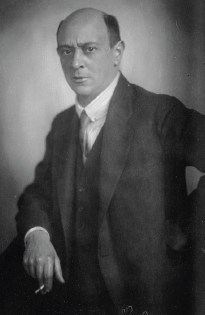Biography
Arnold Schoenberg (1874–1951)

Arnold Schoenberg grew up in Europe’s most intense musical environment, the Vienna of Johannes Brahms and Gustav Mahler. He was largely self-
His early music — notably Transfigured Night of 1899, still his best-
Schoenberg’s music grew progressively more and more atonal, but he was nearly fifty before he developed the twelve-
As a Jew, Schoenberg was forced to leave Germany when the Nazis came to power, and he spent the rest of his life in Los Angeles, becoming a U.S. citizen in 1941. His unfinished opera Moses and Aaron of 1933 is both a Judaic epic and an allegory of the problem of modernist communication with the public. A Survivor from Warsaw was written in memory of the slaughter that occurred in the Warsaw Jewish quarter when the Nazis crushed the uprising there in 1943.
Arnold Schoenberg was a strange personality: gloomy, uncompromising, inordinately proud, and also highly superstitious. Of all the major composers, he was the first great teacher since Bach; besides his close associates of the Second Viennese School, he strongly influenced many other musicians who sought him out as a teacher. Near the end of his life he taught at UCLA.
Chief Works: An early “symphonic poem” for string sextet, Transfigured Night; Five Orchestral Pieces; two chamber symphonies, a piano concerto and a violin concerto; five string quartets ◼ Erwartung (Anticipation), an expressionist monologue for singer and orchestra; the unfinished opera Moses and Aaron ◼ A Survivor from Warsaw ◼ Songs, including The Book of the Hanging Gardens, to texts by the German symbolist poet Stefan George; Pierrot lunaire (Moonstruck Pierrot)
Encore: After Pierrot lunaire, listen to Verklärte Nacht (Transfigured Night) and Five Orchestral Pieces.
Image credit: Hulton Archive/Getty Images.